Shocked Florida communities face the full scale of Hurricane Ian’s death toll, destruction
The massive destruction caused by Hurricane Ian has been revealed in shocking images as the death toll climbs and rescue efforts continue. See the pictures.
World
Don't miss out on the headlines from World. Followed categories will be added to My News.
The death toll from Hurricane Ian, one of the most powerful storms ever to hit the United States, has soared to almost 50, as US President Joe Biden will head to Florida later in the week to survey the devastation and warned Ian could be Florida’s deadliest hurricane ever.
The death toll is expected to rise as recovery efforts continue.
Shocked Florida communities were only just beginning to face the full scale of the destruction in the weekend, with rescuers still searching for survivors in submerged neighbourhoods and along the state’s southwest coast.
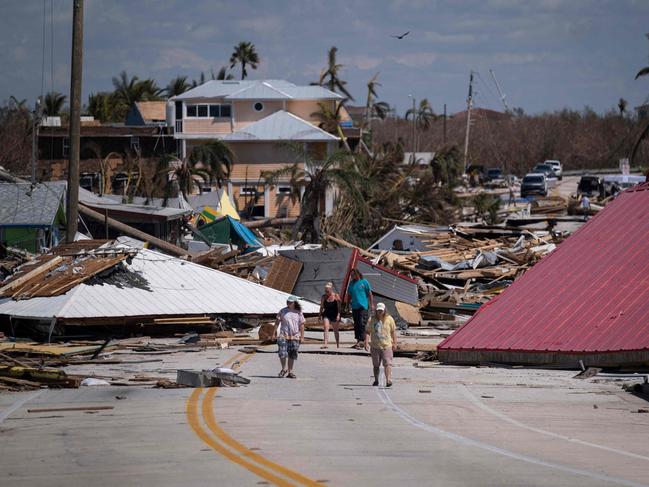
Homes, hotels, resorts, restaurants, caravan parks, and businesses were ripped apart when Ian roared ashore as a powerful Category 4 hurricane on Wednesday.
The confirmed number of storm-related deaths rose to 44 statewide on the weekend, but reports of additional fatalities were still emerging county by county - pointing to a far higher final toll.
Most deaths were caused by drowning.
Many of the victims were over 60 years old, as the region attracts retirees.
Corpses were recovered from beaches, floating in waters, and trapped in flooded cars.
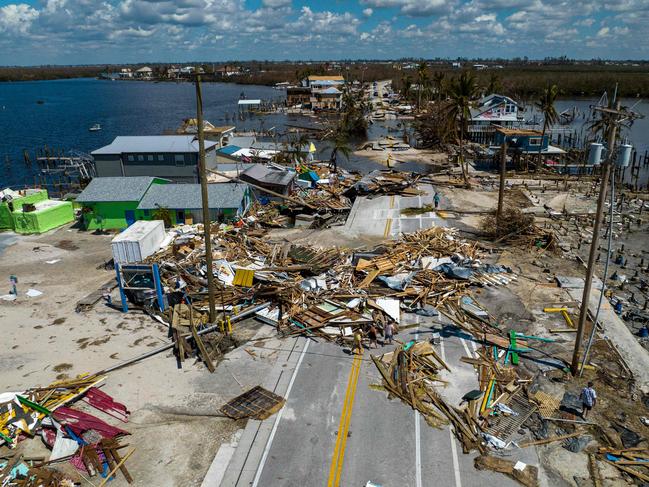
US media including NBC and CBS has tallied more than 70 deaths either directly or indirectly related to the storm.
In the coastal state of North Carolina, the governor’s office confirmed four deaths related to Ian there.
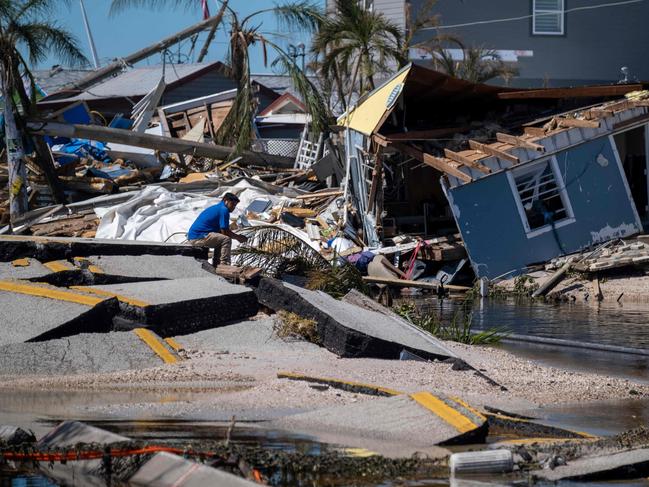
In Florida’s Lee County on Saturday, rescuers and ordinary citizens in boats were still saving the last trapped inhabitants of the small island of Matlacha.
Debris, abandoned vehicles and downed trees littered the pummelled hamlet’s main street and surroundings that are dotted by colourful wooden houses with corrugated roofs.
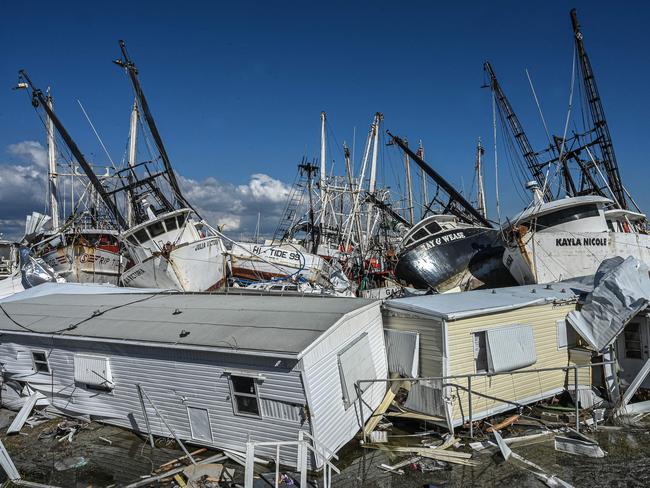
The community, home to about 800 people, was cut off from the mainland following damage to two bridges, and those who fled early were only just beginning to return home to survey the destruction.
Sitting in the shadow of a deserted Matlacha house, Chip Farrar told AFP that “nobody’s telling us what to do, nobody’s telling us where to go.”
“The evacuation orders came in very late,” the 43-year-old said. “But most people that are still here wouldn’t have left anyway. It’s a very blue-collar place. And most people don’t have anywhere to go, which is the biggest issue.”
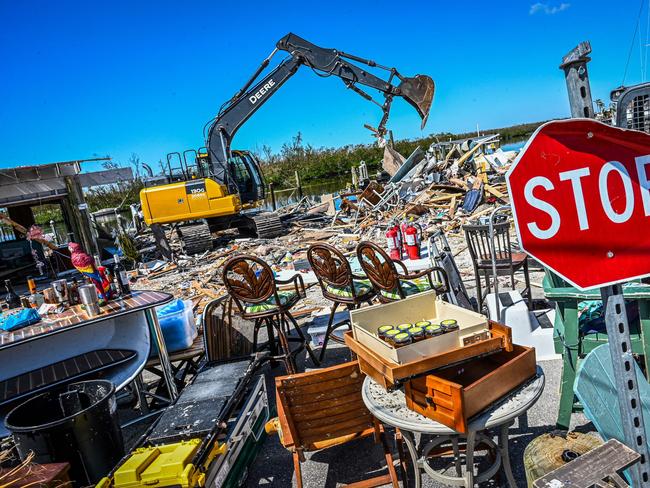
Sixteen migrants were missing from a boat that sank during the hurricane, according to the US Coast Guard. Two people were found dead and nine others rescued, including four Cubans who swam to shore in the Florida Keys.
More than 900,000 residents remained without power in Florida on Saturday night, hampering efforts by those who were evacuated to return to their homes to take stock of what they lost.
Fort Myers Beach, a town on Estero Island on the Gulf of Mexico coast took the brunt of the storm, practically wiping out an entire community.
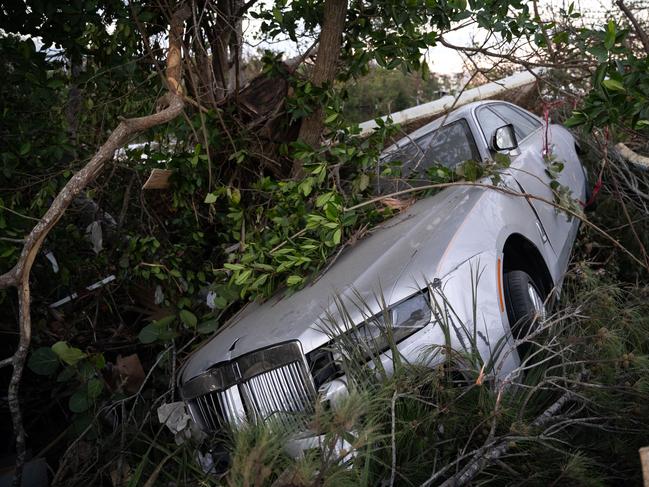
Pete Belinda said his home was “just flipped upside down, soaking wet, full of mud.”
Two hard-hit barrier islands near Fort Myers - Pine Island and Sanibel Island - were cut off after the storm damaged causeways to the mainland.
Aerial photos and video show breathtaking destruction in Sanibel and elsewhere. A handful of restaurants and bars reopened in Fort Myers, giving an illusion of normalcy amid downed trees and shattered storefronts.
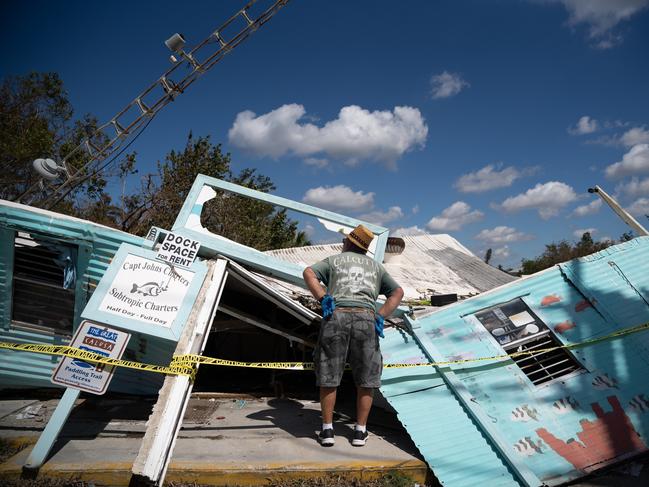
Over the weekend more than 1,100 rescues had been made across Florida, with hundreds of rescue personnel going door-to-door “up and down the coastline.”
While many Floridians evacuated ahead of the storm, thousands chose to shelter in place and ride it out.
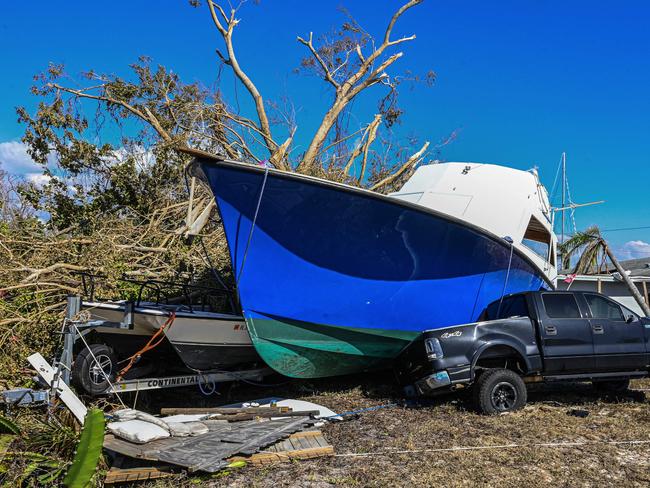
CoreLogic, a firm that specialises in property analysis, said wind-related losses for residential and commercial properties in Florida could cost insurers up to $32 billion ($A50bn), while flooding losses could reach $15 billion (A$23.5bn).
“This is the costliest Florida storm since Hurricane Andrew made landfall in 1992,” CoreLogic’s Tom Larsen said.
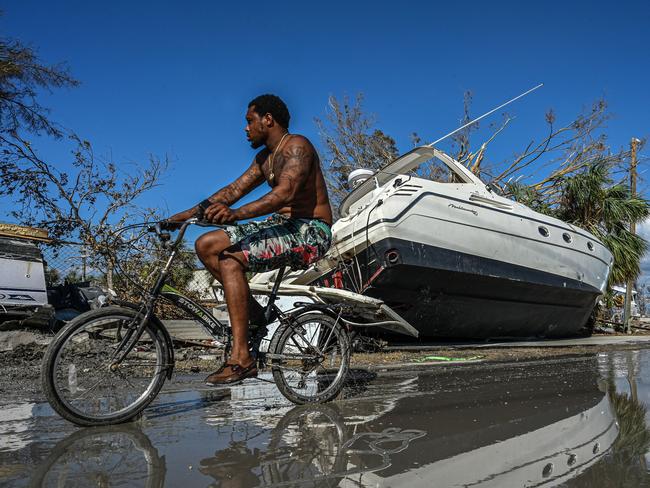
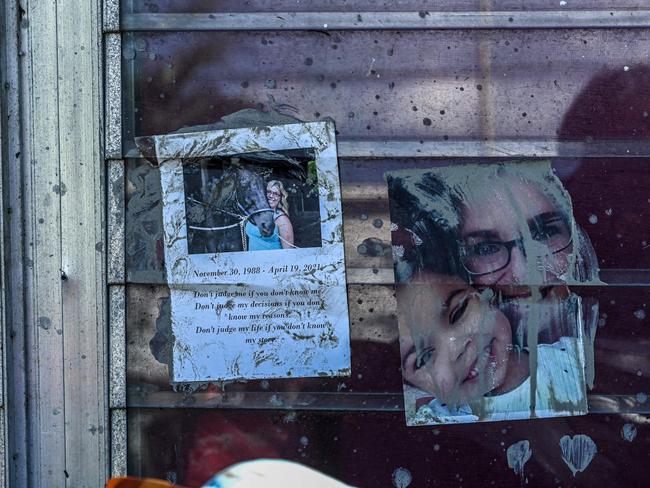
Hurricane Ian barrelled over Florida and into the Atlantic Ocean before making US landfall again, this time on the South Carolina coast Friday as a Category 1 hurricane, with maximum sustained winds of 140 kilometres per hour.
It was later downgraded to a post-tropical cyclone, and it was dissipating over Virginia late Saturday.
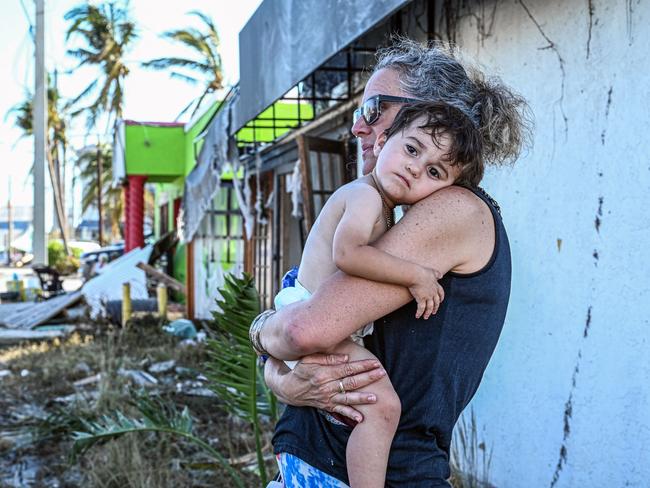
More than 45,000 people remained without power across North Carolina and Virginia, tracking website poweroutage.us said on Saturday.
Before pommeling Florida, Ian plunged all of Cuba into darkness after downing the island’s power network.
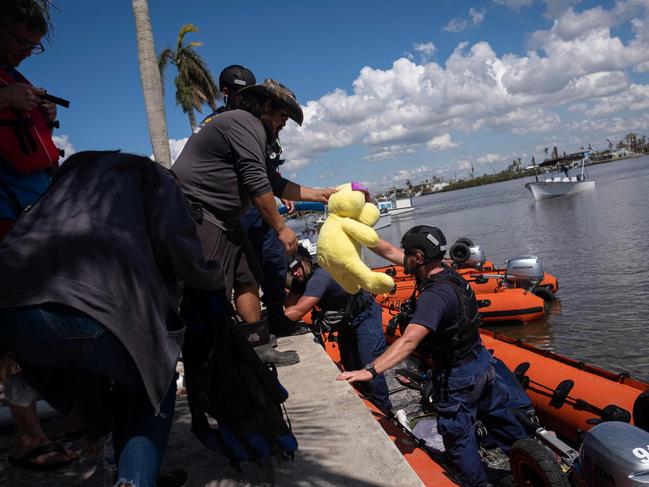
Electricity was gradually returning, mainly in Havana, but many homes remain without power.
A new storm in the Pacific, Hurricane Orlene, intensified to Category 2 strength off the Mexican coast, where it was forecast to make landfall in the coming days.
Human-induced climate change is resulting in more severe weather events across the globe, scientists say.
US President Joe Biden will head this week to Puerto Rico and Florida to witness the damage caused by back-to-back hurricanes, the White House said.
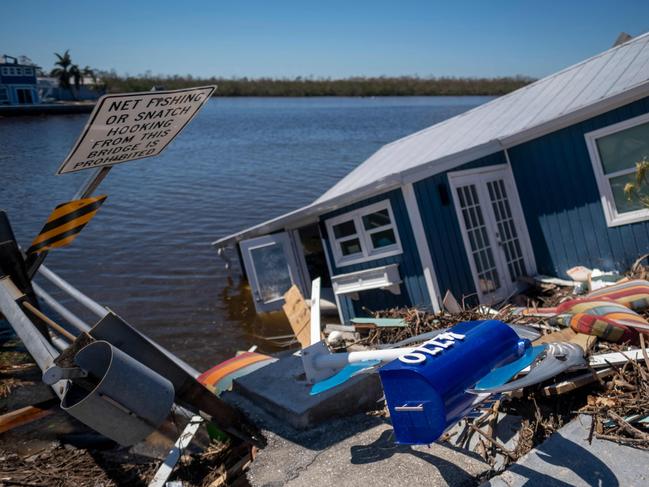
SATELLITE IMAGES SHOW DEVASTATING DESTRUCTION
Eerie satellite images have revealed the devastating damage deadly Hurricane Ian, one of the most powerful storms ever to hit the US, has left behind.
The photos, from Maxar Technologies, show the fishing pier of Fort Myers Beach in Florida, before the hurricane and after Ian hit, leaving millions trapped and without power.
Another image has shown homes along Estero boulevard in Fort Myers Beach before Hurricane Ian and after it made landfall.
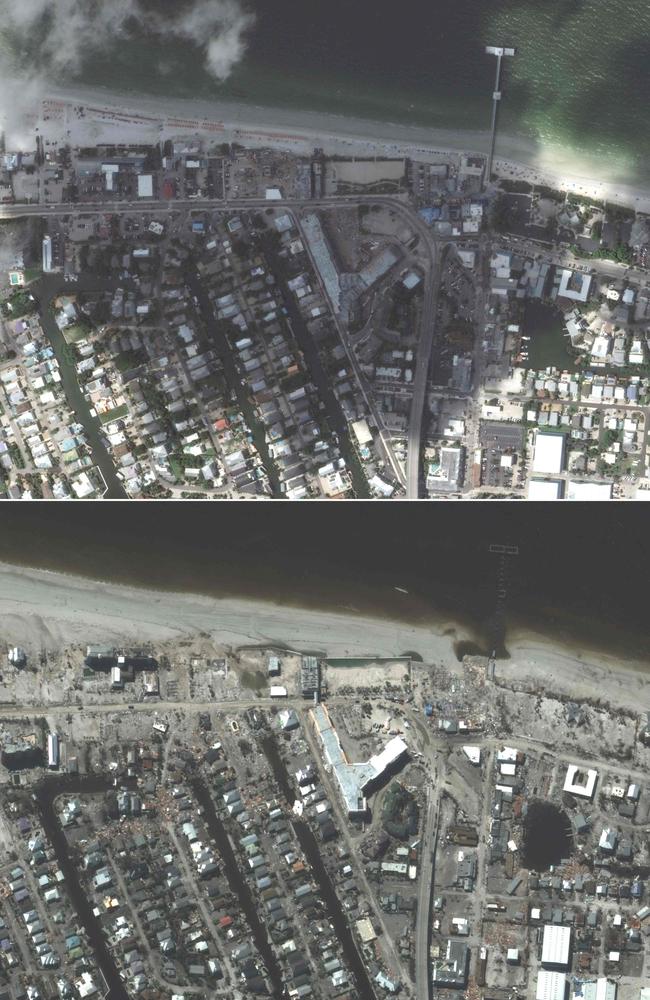
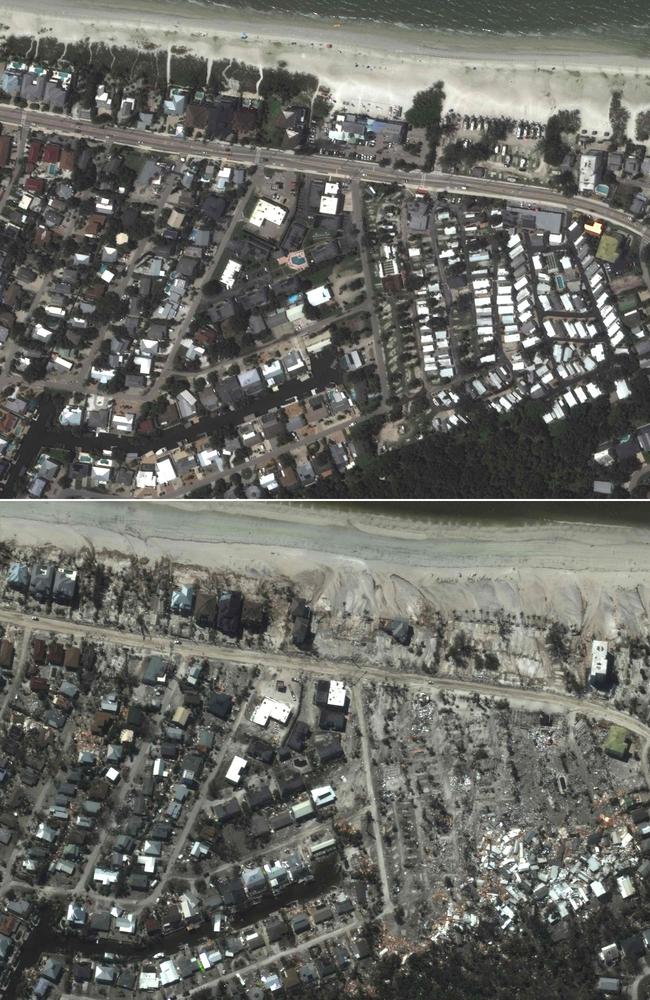
Other images show how sediment has dramatically moved into the ocean on the edge of Florida’s coastline since the storm hit at Don Pedro Island and Sanibel Island.
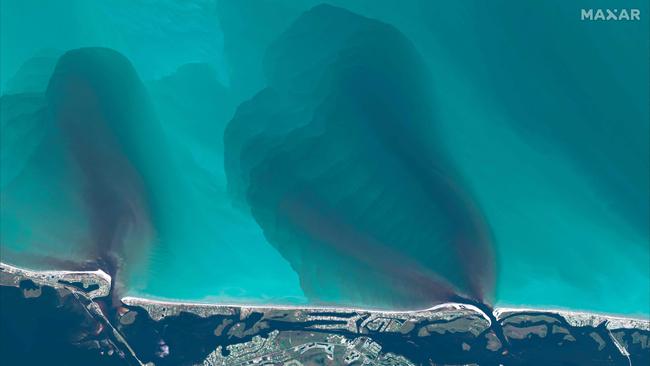
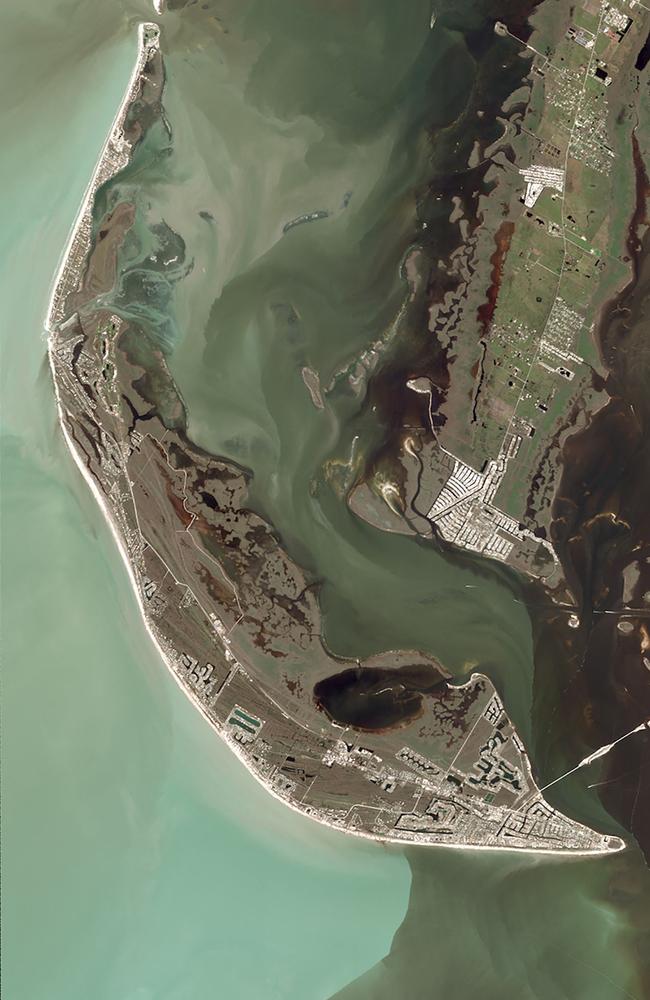
Other aerial shots have revealed how the beaches have been completely destroyed.
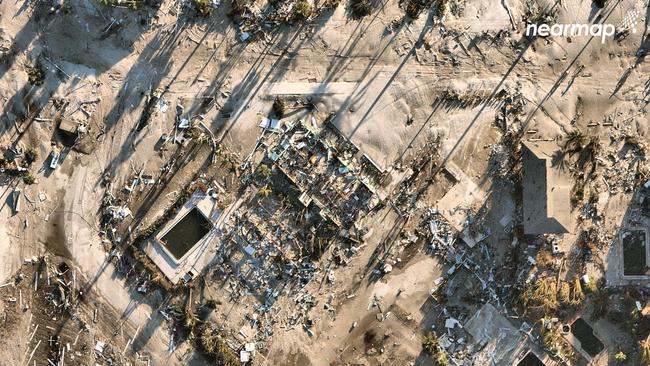
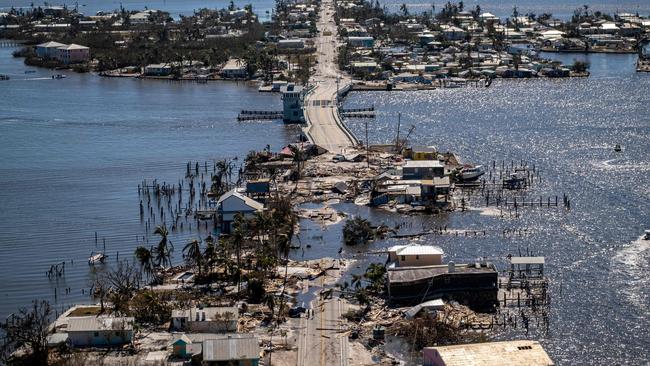
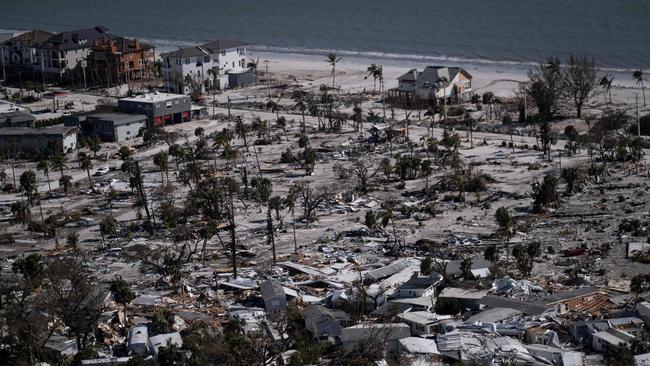
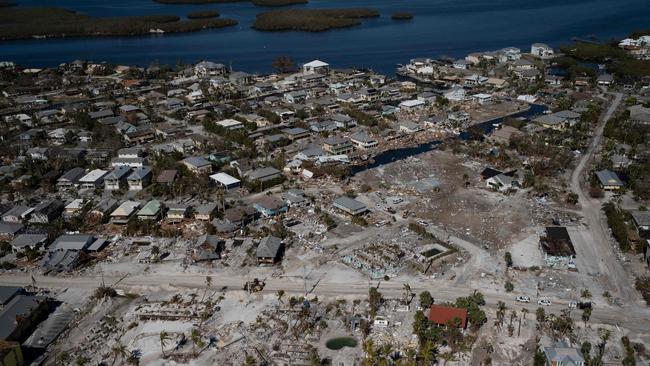
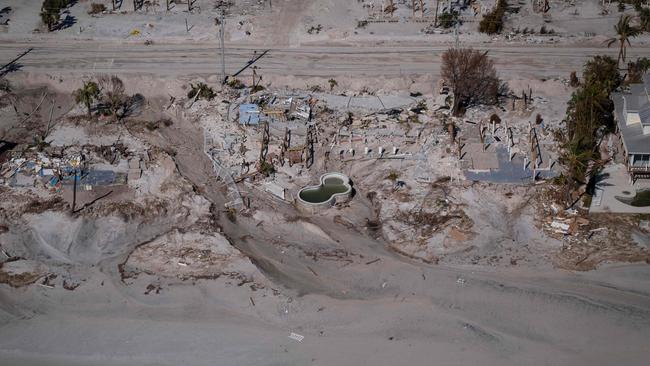
AUSSIE MAN’S LUCKY ESCAPE
An Australian living on the edge of Hurricane Ian’s “ground zero” in Florida has told of his lucky escape as the clean-up from the deadly storm begins.
John Mageropoulos, originally from NSW, bunkered down in his Fort Myers home with his wife and their four children as they were blasted by five hours of extreme winds from the devastating category four hurricane.
Winds reached 250km/h on the Fort Myers coastline, in Florida’s southwest, although the heavy rain did not make it inland to Mr Mageropoulos’s home in Gateway.
“The areas that are on the coast got the wind. We probably had very similar wind here, but we did not have the storm surge. They got the full brunt of it,” he said.
Tiles from a neighbour’s roof smashed into his home and trees in surrounding streets were uprooted, but significant damage was avoided because of the protective hurricane shutters required under strict building rules in the area.
“We got off relatively lightly,” Mr Mageropoulos said.
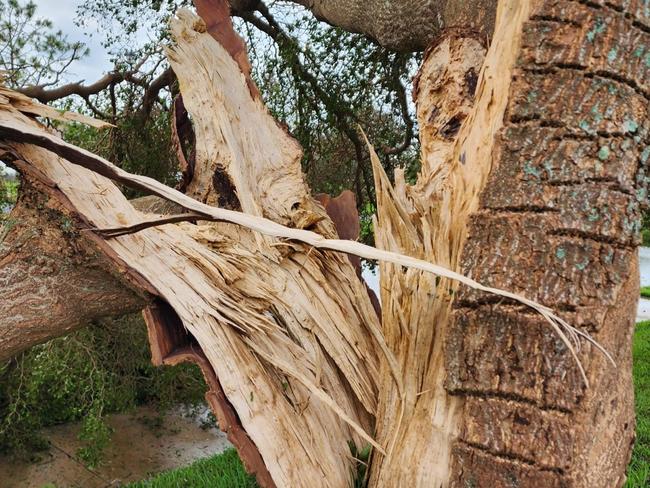

About 20km southwest at Fort Myers Beach, the coastal town was flattened by Hurricane Ian, with Lee County Sheriff Carmine Marceno describing it as the “ground zero of devastation”.
“I’ve never seen anything like this in my life … This is pure devastation,” he said.
Fort Myers Beach town councilman Dan Allers told CNN: “I’d say 90% of the island is pretty much gone … Unless you have a high-rise condo or a newer concrete home that is built to the same standards today, your house is pretty much gone.”
Mr Mageropoulos said the worst of the storm “wasn’t originally predicted to come directly here”.
“It was going to bypass us and go towards Tampa,” he said.
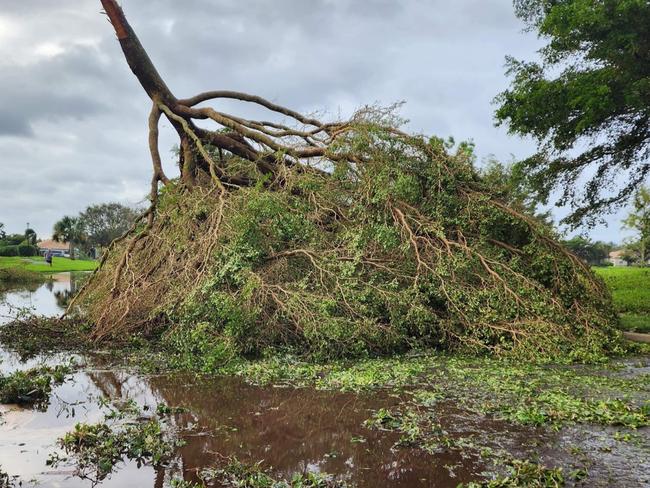
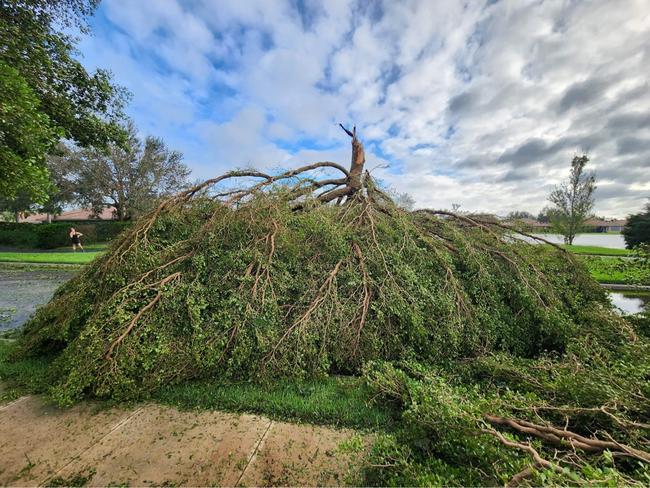
“But it was kind of the worst of everything … the worst-case scenario.”
Mr Mageropoulos, who has lived in the area for 13 years, recalled how they were caught in the eye of Hurricane Irma in 2017.
While that storm left him without power for a week, electricity has now been restored in Gateway, although residents are being told to boil their water until further notice.
“It’s hard to find water now … The lines are huge, there’s no water on the shelves,” Mr Mageropoulos said.
“To get gas to fill up the tank is probably an hour or two-hour wait.”
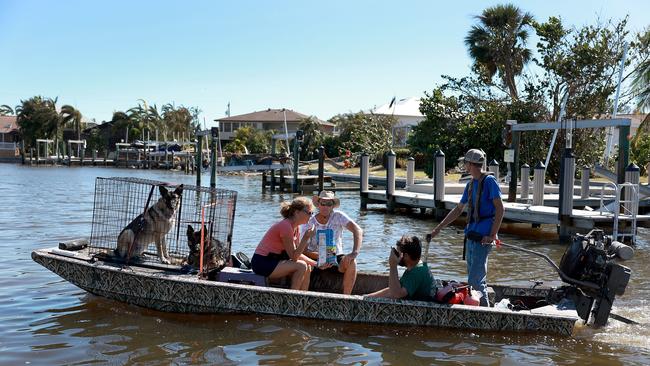
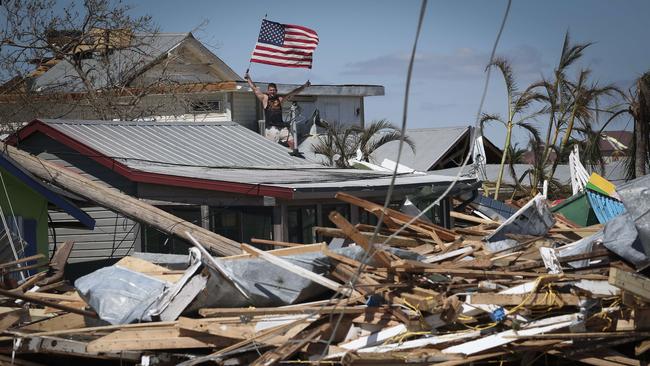
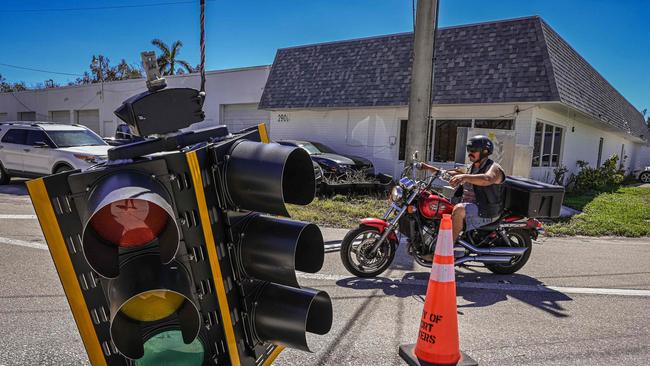
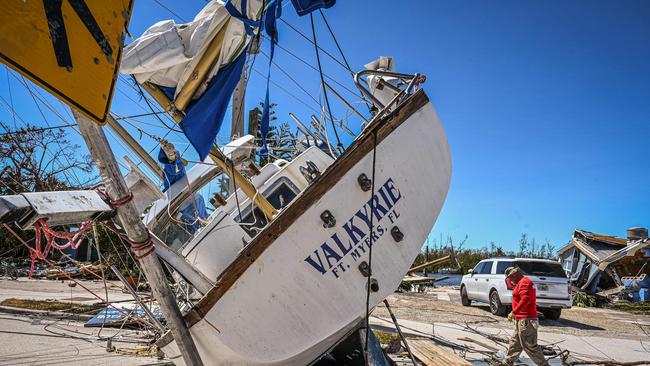
Originally published as Shocked Florida communities face the full scale of Hurricane Ian’s death toll, destruction
Read related topics:Joe Biden



